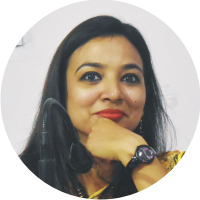
Introduction
Education has been linked to both professional and personal development, as well as to economic growth and broader outcomes such as political interest or confidence in the justice system. In many countries, governments mostly focus on this direct relationship to persuade individuals to pay for their education. This one-sided perspective undermines the intrinsic and inherent value of education as such, fostering social justice, individuals' capabilities, or identity. The benefits of education are broad; they not only include labor market performances but also non-market effects encompassing further education, health, and well-being. As in the old story of the Grateful Children, the population might be in favor of education as being a public good, or at least partly so. Education is a multifaceted measure affecting attributes of people at any stage of life. In the context of a cost-benefit analysis, these lifelong learning processes help to explain different effects of education on professional and personal behavior. Furthermore, understanding different education effects through the life cycle is of great importance in designing human-capital-promotion strategies, for instance by implementing training-intensive policies or by recommending continued learning schemes.
Theoretical Framework
It is hard to imagine a strict and watertight separation between personal and professional development. All of us are human beings first and professionals afterwards. The behavioral changes, such as an increase in responsibility and reliability, proper time organization, flexibility in relationships with colleagues and supervisors, are examples of personal views that are invaluable for any profession and organization. Nevertheless, the process of personal and professional education is quite different and is realized in different phases of human life. If professional education is mainly a domain of formal education, personal development is a continuous process and should be continuously fostered by any institution, independent of its type and goals. Whereas it is possible to finish with formal professional education within a 6 to 7-year period, personal education continues throughout our life.
Key Concepts in Education and Development
The concept of development has significantly evolved over time. It is associated with economic growth and consequently with an increase in living standards. However, as of the 90s, the vision of development was replaced by the concept of sustainable human development which, beyond economic growth, considers the fulfillment of basic needs and rights of people, acknowledging human well-being as an essential component of a country's armed development. The generation and effective utilization of human capital become critical to improving the standard of living and promoting sustainable long-term potential for economic development. Hence, the human development and human capital models arose, emphasizing the importance of education and training. Education is a fundamental tool in overcoming the challenges that our society and every society in the 21st century face. Without a doubt, we live in a society of uncertainty and transformation to which education must respond. Over the millennia, education has faced challenges to adapt and evolve.
The Role of Education in Personal Development
The role of education in personal development is considered in terms of the following paradigms: 1) relativistic philosophical, considering which education can develop volitional senses belonging to the main psychological clusters that reflect the general directions of the child's behavior (towards oneself, others, a thing, an activity); 2) system-activity, which allows taking into account the connection between the process of personal development and the process of mastering general and professional knowledge and skills, readiness for professional work. Education helps a person elaborate the system of life values, master the productive concepts of one's own existence, accomplish the task of self-determination. At the same time, the main means of personal self-development the person's development is the direct participation in the updating of relations with the phenomena of reality as a personally significant subject. During the variability of pedagogical influences, only his own inner forces make it possible to find the right direction in life, even in cases where outside help is required, especially in difficult life circumstances, crises, doubts. The moral essence of the inner motives of behavior and life activity of the individual as a subject of life-self-determination and the maintenance of spiritual relations in sociality are controlled by the internal tape. At such times, it is difficult to establish what is worse - this subjective helplessness of the personality, avoiding the necessary change, or the feeling of indifference and indifference to those phenomena of the learner surrounding reality, to thinking about their moral teaching implications.